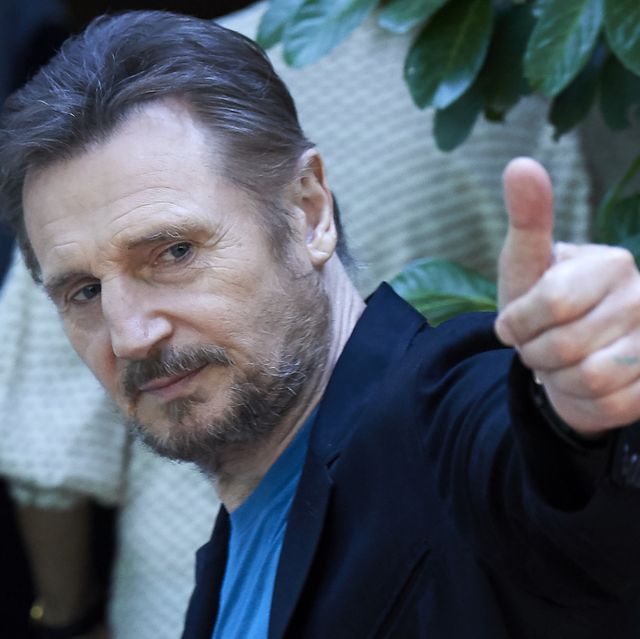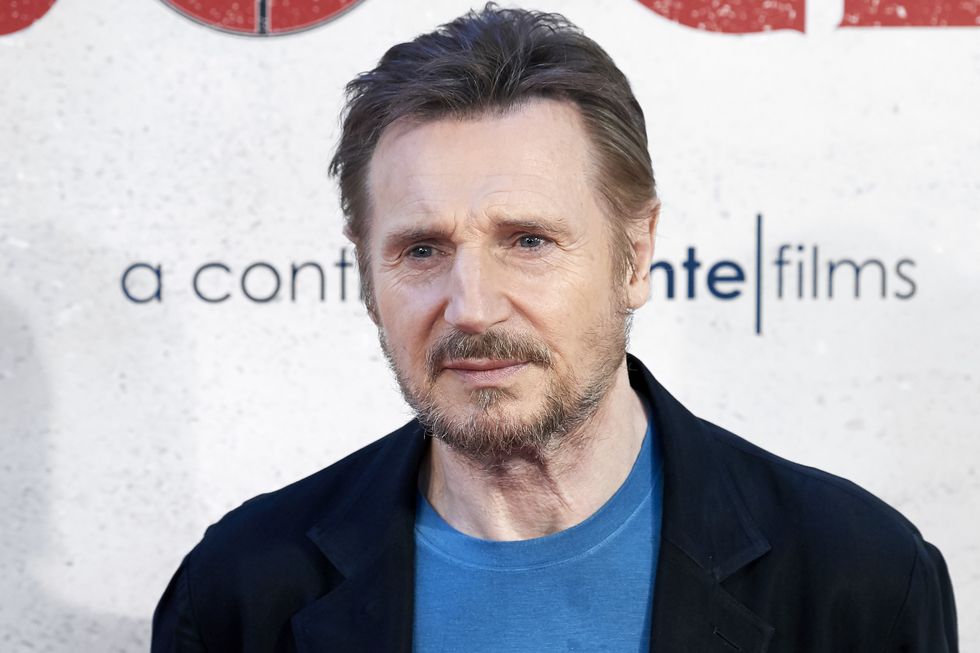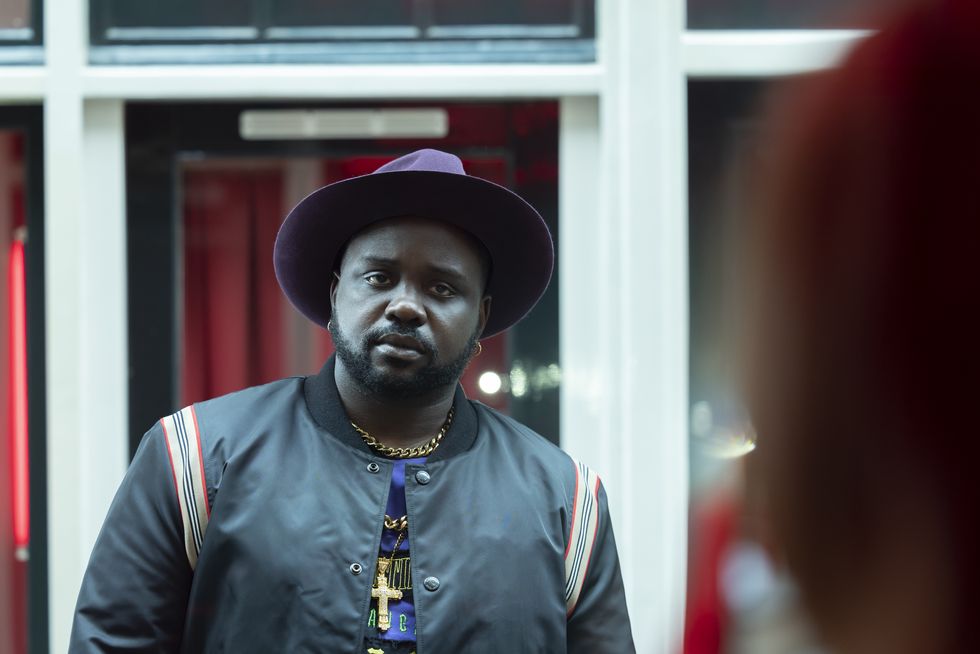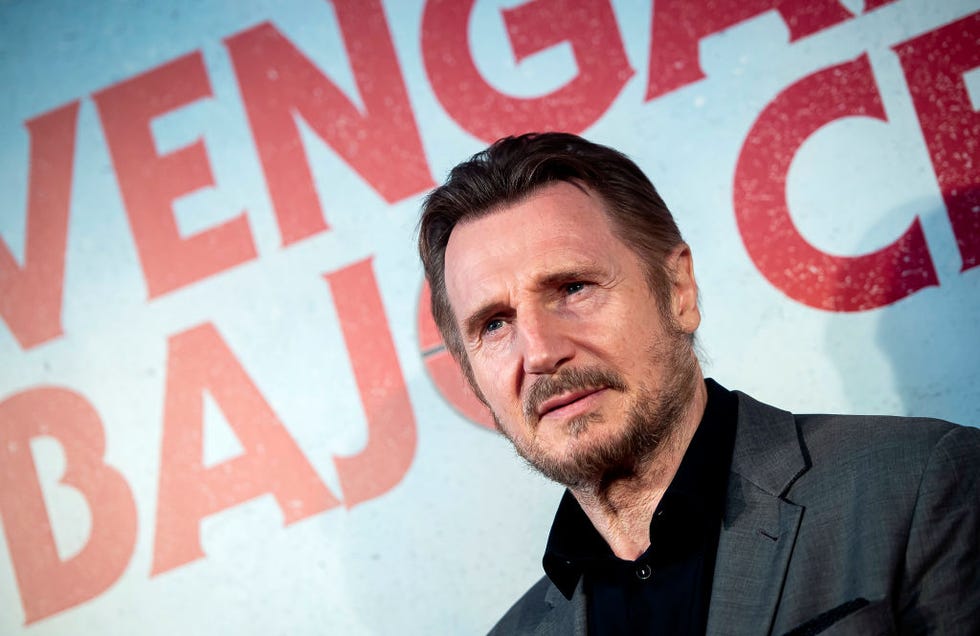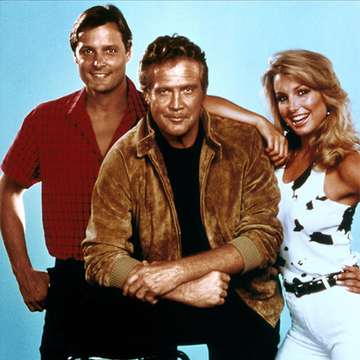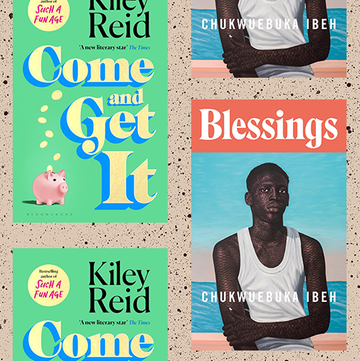This week's episode of Atlanta takes its signature pop culture commentary to a new level of subversion. In "New Jazz," a 2019 controversy is rehashed peculiarly when Paperboi stumbles into a regal, yet seedy Amsterdam nightclub. The first clue something is off: Someone drinking at the bar while dressed as a dalmatian elicits no surprise. After being sufficiently weirded out, Paperboi stumbles into a separate room where he runs into someone you'd probably never expect to appear on Atlanta: Liam Neeson.
Neeson's conversation with Paperboi quickly goes from cordial to suspicious. After Paperboi tells him he got into the club thanks to a local, Neeson snarkily asks if the local strangled a fan or had sex with a teenager. Just as you're probably wondering what the hell's wrong with Liam Neeson, Paperboi glances at a napkin with the name of the club emblazoned in gold lettering: Cancel Club.
Brilliantly, Atlanta manifests a twisted "safe space" where all people canceled by society can have a good time without being judged for their reprehensible behaviour. (For instance, someone calls a woman's room 106 & Park because she's known to have sex with rappers—only she's greeted with laughter instead of derision.) But why is Liam Neseon frequenting this 2022 manifestation of one of Dante's circles of hell? It doesn't take long to find out. Neeson is there for a controversy he sparked three years ago that involves rape, revenge, and racism.
What was the Liam Neeson racism controversy?
In 2019, Neeson gave an interview with The Independent to promote his film Cold Pursuit, an action-thriller in which Neeson's character seeks revenge for his son's murder. Neeson has almost singularly owned the parental revenge hero movie genre ever since showing off his "particular set of skills" in 2008's Taken. You might think it safe to assume someone who's done interviews for revenge films for over a decade could reflexively spout off a series of bland, uncontroversial, media-trained answers. Instead, Neeson drove the point home about the primal urge for revenge by offering up a story about how he once sought retribution for the rape of a friend.
When Neeson learned his friend didn't know who her attacker was, he apparently asked, "What colour were they?" When she informed him the rapist was Black, Neeson admitted to The Independent that he went into a race-fuelled rage. "I went up and down areas with a cosh, hoping I’d be approached by somebody—I’m ashamed to say that—and I did it for maybe a week, hoping some ‘black bastard’ would come out of a pub and have a go at me about something, you know? So that I could...kill him," Neeson said.
As you might expect, Neeson's racially insensitive comments stirred up controversy, with some saying Neeson exhibited toxic white privilege. The New York premiere for Cold Pursuit, scheduled to occur a week after Neeson's comments were made public, was rumoured to have been canceled at the last minute due to the controversy. He tried clarifying his remarks on Good Morning America the day after the Independent interview, saying he wasn't racist and that the incident happened 40 years ago.
Neeson added that he only mentioned the incident at all because The Independent journalist Clémence Michallon asked how he channeled vengeful feelings for his role in Cold Pursuit. He also grew defensive while taking veiled shot at his detractors in a subsequent Good Morning America interview, claiming he revealed the story as a way of touching on what he felt was a more universal experience for most people. "We all pretend we're all politically correct in this country... in mine, too. You sometimes scratch the surface, and you discover this racism and bigotry, and it's there," he said.
Did Liam Neeson apologise on Atlanta?
Not exactly. In the show, Neeson delivers a half-committed apology where he's only apologising "if I hurt people." As he did in the Good Morning America interview, he expresses shock and regret for his racially-charged revenge fantasies. His usual low, gravelly voice also takes on a more earnest and reflective tone as he explains to Paper Boi why he told the story and that he "thought people knowing who I once was made clear who I am; who I've become."
The scene very nearly succeeds at lulling viewers into a false sense of empathy for a man willing to own up to his past misdeeds. But then, reality takes a backseat to surrealism once more. Neeson corrects Paper Boi after the rapper says he's glad Neeson doesn't hate Black people. "I can't stand the lot of you. Now, I feel that way because you tried to ruin my career—didn't succeed, mind you," he says. "I'm sure one day I'll get over it, but until then, we are mortal enemies."
For Neeson's character in the show, the takeaway from the past three years is that "the best and worst part about being white is we don't have to learn about anything if we don't want to." As the episode concludes, Paper Boi wakes up—turns out, he's been asleep for 10 hours. The Cancel Club was all a dream.
Was Neeson seeking absolution through parody? Was he hiding his true feelings in plain sight on a show where caricatures run rampant? Or did he simply just want to be part of the Donald Glover universe any way he could? Whatever the reason, he just delivered Atlanta one of its most shocking and memorable scenes that'll have everyone talking about him—and his history—again, for better or worse.
Keith Nelson is a writer by fate and journalist by passion, who has connected dots to form the bigger picture for Men’s Health, Vibe Magazine, LEVEL MAG, REVOLT TV, Complex, Grammys.com, Red Bull, Okayplayer, and Mic, to name a few.
